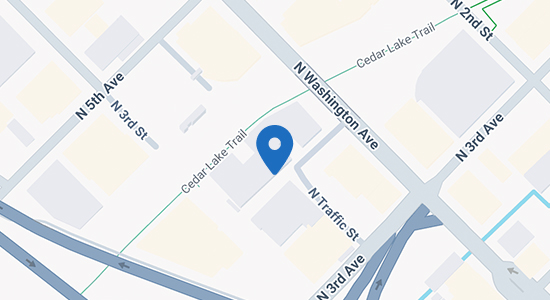Fighting for You
DWI Resource Center
MINNESOTA DWI LAWS

In the State of Minnesota, you can be charged with DWI/DUI under the following circumstances:
- Your alcohol concentration is .08 or more,
- You are under the influence of alcohol,
- You are under the influence of a Controlled Substance,
- You refuse a chemical test. (Blood, Breath or Urine)
Alcohol concentration means:
- The number of grams of alcohol per 100 milliliters of blood;
- The number of grams of alcohol per 210 liters of breath; or
- The number of grams of alcohol per 67 milliliters of urine.
The penalties that can be imposed in Minnesota for DWI depend on whether there are any aggravating factors present at the time of the arrest. Aggravating factors are determined by one or more of the following:
- Prior DWI convictions or alcohol related loss of license within the past 10 years;
- Your test result. (a result of .20 or more is an aggravating factor).
- If there are children in the car.
- Test Refusal
Number of Aggravating Factors Criminal Classification Maximum Penalty
none4th Degree DWI, misdemeanor$1,000 fine and/or 90 days jailone3rd Degree DWI, gross misdemeanor$3,000 fine and/or 1 year jailtwo2nd Degree DWI, gross misdemeanor$3,000 fine and/or 1 year jailthree1st Degree DWI, felony (fourth offense only)$14,000 fine and/or 7 years jail
Call us at (612) 465-8581 for a free legal consultation.
MANDATORY PENALTIES UNDER MINNESOTA LAW
- Second Offense: A minimum of 30 days of incarceration, at least 48 hours must be served in a local correctional facility; or
- Third Offense: A minimum of 90 days of incarceration, at least 30 days must be served in a local correctional facility; or
- Fourth Offense: Unless the court commits the person to prison, a minimum of 180 days of incarceration, at least 30 days in a local correctional facility; or
- Fifth or More: Unless the court commits the person to prison, a minimum of 1 year or incarceration, at least 60 days must be served in a local correctional facility.
Although Minnesota laws require the above mandatory penalties, there are a number of ways around serving the incarceration portion of the sentence. Such as repeat DWI programs and house arrest.
Under Minnesota law, if you are arrested for a qualifying DWI offense, the officer must detain you until mandatory release conditions of $12,000 bail and/or alcohol monitoring conditions have been met. Qualifying offenses include;
- 1st or 2nd Degree DWI; or
- 3rd Degree DWI and if the person is under the age of 19; or
- First time offenders, that have a test result of .20 or more, had children in the vehicle or person’s license had been cancelled as Inimical to Public Safety.
If you have been arrested for a qualifying offense, please contact us immediately, our DWI Lawyers can make the proper arrangements for your release in a timely matter.
ADMINISTRATIVE PENALTIES
Separate from any criminal penalties that may arise from a DWI conviction, Minnesota law provides for three administrative sanctions that commence immediately upon arrest/testing:
(1) Minnesota License Revocation Periods
Whenever the implied consent law is invoked (request to take a test) during the arrest process, the person’s driving privileges can be revoked immediately following any test failure or test refusal. The person is given a seven-day temporary license to drive before the revocation becomes effective. The period of license revocation changed on July 1, 2011 and are as follows:
| 1st Offense | Revocation Period | Hard Revocation | Limited License |
| Under .16 | 90 Days | 0 Days with Interlock | YES |
| Test Refusal | 1 year | 0 Days with Interlock | YES |
| .16 or more | 1 Year | 0 Days with Interlock | NO |
| 2nd Offense | |||
| Under .16 | 1 Year | 0 Days with Interlock | NO |
| .16 or more | 2 Years | 0 Days with Interlock | NO |
| 3rd Offense 4th Offense 5th Offense | 3 to 6 Years | 0 Days with Interlock, However, must prove sobriety by use of Interlock for the entire period. | 1 Year of Interlock allows only restricted license. Remaining period is unrestricted with use of Interlock. |
In order to challenge your license revocation, an Implied Consent Petition must be filed to adequately protect your rights. This must be done within 30 days of your arrest, or you lose this right forever! Call us at (612)-465-8581 for a free legal consultation.
(2) Minnesota License Plate Impoundment
A plate impoundment violation is an impaired driving violation involving an aggravating factor, including any offense:
- occurring within ten years of a qualified prior impaired driving violation
- involving an alcohol concentration of .20 or more
- having a child under the age of 16 present in the vehicle
- occurring while the person’s license has been cancelled as inimical to public safety
Plate impoundment applies to:
- the vehicle used in the plate impoundment violation
- any vehicle owned, registered, or leased in the name of the violator, whether alone or jointly.
A plate impoundment order is issued by the arresting officer at the time of arrest and is effective immediately. The officer also seizes the plates and issues a temporary vehicle permit that is valid for seven days (or 45 days if the violator is not the owner).
The minimum term of plate impoundment is one year, during which time the violator may not drive any motor vehicle unless the vehicle displays specially-coded plates and the person has a valid license to drive. The violator is also subject to certain restrictions when selling or acquiring a vehicle during the impoundment period.
Special license plates (whiskey plates) – signifying to law enforcement that the regular plates have been impounded for an impaired driving violation – may be issued for the vehicle(s) provided that:
- the violator has a properly license substitute driver;
- a member of the violator’s household is validly licensed;
- the violator has been validly re-licensed; or
- the owner is not the violator and is validly licensed.
It is a crime for a driver whose plates have been impounded to attempt to evade the plate impoundment law in certain specified ways, or for another person to enable such evasion.
An Implied Consent Petition must be filed to adequately protect your rights. This must be done within 30 days of your arrest, or you lose this right forever! Call us at (612) 465-8581 for a free legal consultation.
(3) Minnesota Vehicle Forfeiture
Minnesota’s DWI law provides for vehicle forfeiture for a designated license revocation of designated offense, which is typically the third DWI violation within a ten-year period, though with one or more enhancing factors, a person’s second-time or even first-time violation might qualify as well.
DWI law defines “designated license revocation” as a license revocation or commercial license disqualification for an implied consent violation within ten years of two or more qualified impaired driving incidents. The term “designated offense” includes a DWI violation in the first or second degree or involving a person whose drivers is cancelled as inimical to public safety or subject to a B-Card (no use of alcohol or controlled substance) restrictions.
The law provides that the arresting officer may seize the vehicle and requires that the prosecuting authority serve notice to the owner(s) of the intent to forfeit. The forfeiture is conducted administratively, unless within 30 days the owner appeals the forfeiture action by filing for a judicial determination of the forfeiture.
A vehicle is subject to forfeiture under the law only if:
- it was used in the commission of a designated offense and the driver was convicted of that offense or failed to appear at trial; or
- it was used in conduct resulting in a designated license revocation and the driver either fails to seek administrative or judicial review of the revocation in a timely manner or the revocation is sustained upon review.
Other vehicles owned by the offender are not subject to forfeiture. As protection for an owner who is not the offender (“innocent owner”), the law states that a motor vehicle is subject to forfeiture only if the owner knew or should have known of the unlawful or intended use of the vehicle.
Following completion of the forfeiture, the arresting agency may keep the vehicle for its official use. However, the security interest or lease of the financial institution, if any, is protected, and the lien holder may choose to sell the vehicle at its own foreclosure sale or agree to a sale by the arresting agency. A proportionate share of the proceeds, after deduction of certain expenses, goes to the financial institution. The law provides similar protection to any innocent co-owner as well.
A Demand for Judicial Determination must be filed within 30 days of you receiving the Notice of Seizure with Intent to Forfeit. Failure to do, results in an automatic Administrative Forfeiture of your vehicle. Call us at (612) 465-8581 for a free legal consultation.













